The world is no longer safe from a nuclear war
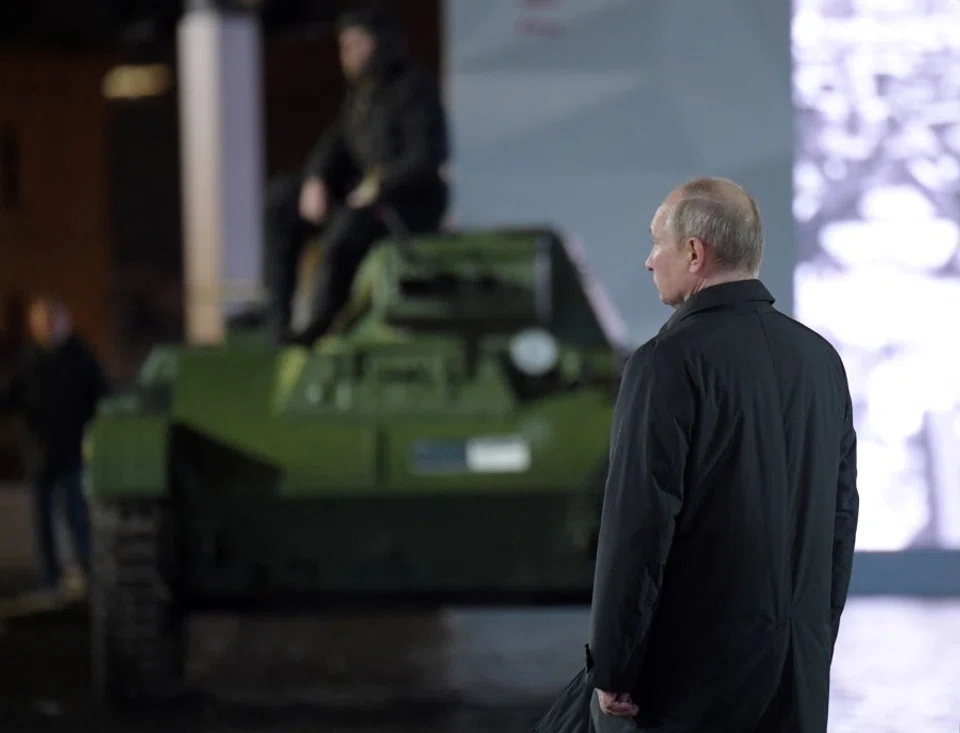
It has been 77 years since the atomic bombs called Little Boy and Fat Man fell on Hiroshima and Nagasaki; this ultimate weaponry has never again been used.
I have always thought of nuclear technology as a peaceful and wonderful invention and a clean and efficient source of energy. As for nuclear winters, they are the stuff of science fiction and movies. I would not expect to witness the horrors of mushroom clouds hanging over cities in my lifetime.
'Nuclear club' led by US and Russia
But I am now doubtful because of developments in the Russia-Ukraine war, including the Russians' attack on a Ukrainian nuclear power station, the mutual accusations of Russian and Ukrainian plots to use radioactive dirty bombs, and the large-scale military exercises conducted by Russian nuclear forces.
Russian President Vladimir Putin even warned that he would use all means to protect Russia and its people. Does this extend to the four Ukrainian regions that voted to join Russia? And is Putin's statement a clear indication that nuclear weapons are an option?
More importantly, does this mean that the likelihood of a nuclear war has suddenly increased tenfold, or even a hundredfold?
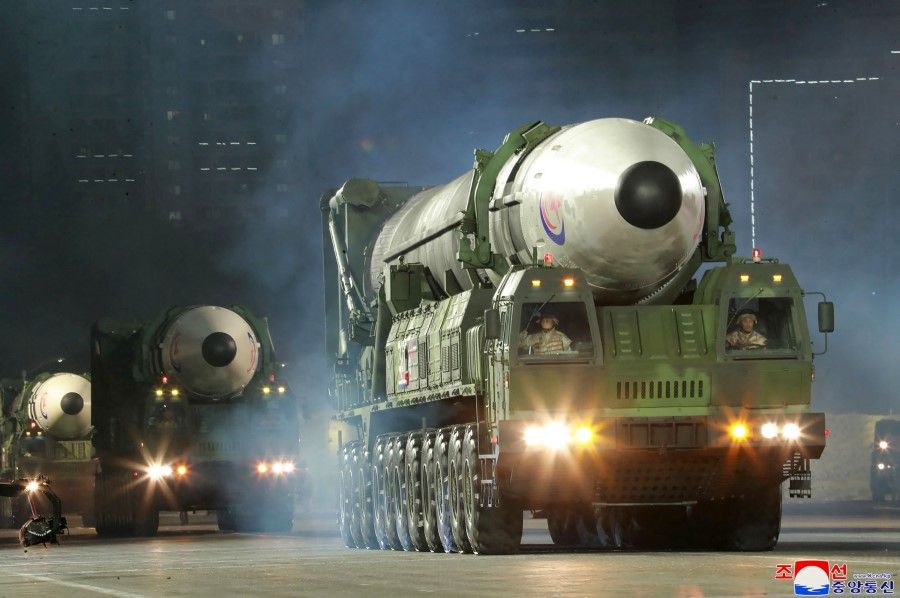
Previously, I thought that we did not have to worry about the "nuclear club", which included the US, Russia, China, the UK, France, India and Pakistan, but should instead take note of the non-club members Israel and North Korea.
Israel clearly has nuclear bombs but has never admitted or denied that it has them, and war is a daily occurrence for its people. Meanwhile, North Korea is more worried about the rest of the world not knowing that it possesses nuclear bombs. With nothing to lose, you can never know when the "Great Leader" would get upset or for what reason he would actually push the nuclear button.
Over at the "nuclear club", China, the UK, France, India and Pakistan have 300 or fewer nuclear warheads each and can only be considered minor members. Possessing a nuclear arsenal is their way of displaying bravado and intimidating each other in case of trouble. For instance, while India and Pakistan are sworn enemies, they know better than to truly start a nuclear war.
... nuclear warfare was rarely on their cards due to a great disparity in strength, the absence of a direct threat to their territories and citizens, or the benefits outweighing the costs, including the cost of becoming sinners in history.
The US and Russia are the only major members of the club and are said to possess 5,000 to 6,000 nuclear warheads each, or jointly more than 90% of the global total, enough to destroy the Earth several times over.
The spectre of "mutually assured destruction" kept things relatively under control during the Cold War era in a precarious state of "balance of terror". When the conditions were ripe, the US and Russia could even agree on certain nuclear non-proliferation and disarmament principles. When it came to dealing with their other opponents, nuclear warfare was rarely on their cards due to a great disparity in strength, the absence of a direct threat to their territories and citizens, or the benefits outweighing the costs, including the cost of becoming sinners in history.
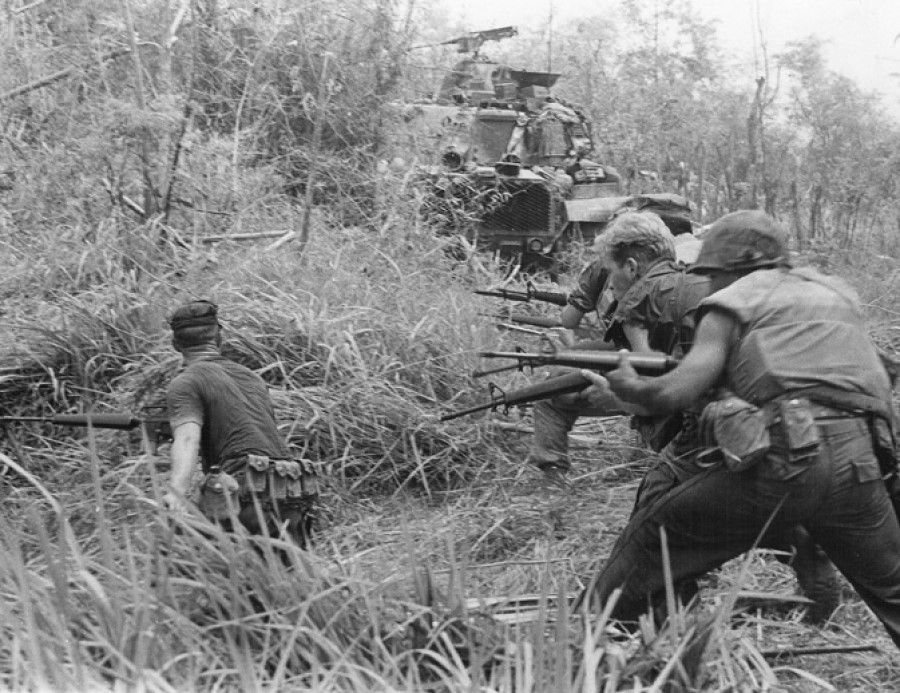
The best example to illustrate this is the Vietnam War. Although the US deployed nearly all sorts of weapons, it did not consider using nuclear bombs even when it was on the verge of total defeat. Instead, it chose to pull out with its tail between its legs. The Soviet Union, likewise, did not use nuclear bombs in Afghanistan when it was so mired in the war that victory became more and more elusive. Notably, its defeat in Afghanistan indirectly led to the Soviet Union's collapse.
Who would have thought that so many years after the end of the Cold War, it would be Russia - a major member of the "nuclear club" and inheritor of the Soviet Union's nuclear arsenal - that has publicly threatened to use nuclear weapons on non-nuclear Ukraine, especially when conventional war has already broken out between them.
Soviet Union's nuclear stance
Looking back in time and through the fog of Western propaganda, the Soviet Union's anti-nuclear stance was actually more resolute and convincing than that of the US. As early as the 1950s, it began to protest the use of nuclear weapons on non-nuclear states, supported the establishment of Nuclear-Weapon-Free Zones, and a full ban on the testing of nuclear weapons. It even came up with the intriguing idea of putting the United Nations (UN) in charge of the global nuclear arsenal.
At the heart of the matter is that in its ideological struggle with the West then, the Soviet Union was primarily on the side of Third World countries and disadvantaged peoples. In order to capture hearts and the moral high ground, the Soviet Union was against imperialism and colonialism, so it was more adept at exercising restraint and welcoming others into its fold, and very rarely used nuclear threats on others. Nikita Khrushchev, the Soviet Union leader then, also showed a greater willingness towards peaceful competition and friendlier relations with the West.
... its [Soviet Union's] refusal to share its knowledge of nuclear weapons with communist China based on its assessment that Mao Zedong was warlike and once boasted that it was fine even if half of China's population (of 600 million) were to perish in a nuclear war with the American imperialists...
There were at least two incidents that revealed the caution and apprehension the Soviet leadership had towards nuclear weapons. The first is its refusal to share its knowledge of nuclear weapons with communist China based on its assessment that Mao Zedong was warlike and once boasted that it was fine even if half of China's population (of 600 million) were to perish in a nuclear war with the American imperialists - the statement was refuted by the Chinese government for being taken out of context and an intentional slander by the Soviets. The issue together with historical baggage in the form of ideological differences and territorial disputes led to the rupture in China-Soviet Union relations.
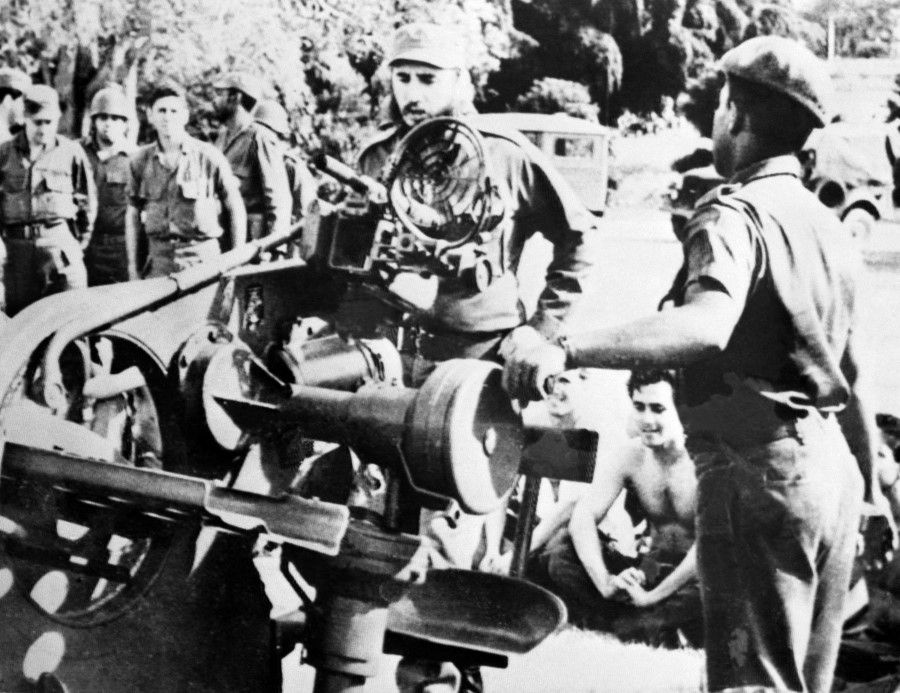
The second is the Cuban Missile Crisis in 1962, a 14-day period during the Cold War in which the world was on the brink of a nuclear war. Fortunately, Khrushchev chose to compromise at the last moment when he realised that the US military was ready to battle at all costs.
After Khrushchev, Leonid Brezhnev who long served as the leader of the Soviet Union was also dovish when it came to nuclear weapons. He actively championed the Treaty on the Non-Proliferation of Nuclear Weapons (NPT). To garner support for the NPT, he even proposed that the UN ratify a convention on the no-first-use of nuclear weapons. In June 1982, at a UN special session on disarmament, Brezhnev pledged that the Soviet Union will not use nuclear weapons first. He would pass away less than five months later.
Mikhail Gorbachev, the last leader of the Soviet Union who recently passed away, can be said to have achieved the most in restricting nuclear weapons. In 1987, the US and the Soviet Union ratified the landmark Intermediate-Range Nuclear Forces Treaty (INF), a highlight of both his and then US President Ronald Reagan's tenures. In 2018, 31 years later, when President Donald Trump announced that the US was withdrawing from the INF Treaty, an aged Gorbachev told reporters that it was a mistake. He credited the treaty for protecting life on Earth and that the benefits of peace were now under threat.
A more dangerous Russia
In comparison with the Soviet Union, Russia is more dangerous, even as a fading power.
Coming into the 21st century, North Atlantic Treaty Organisation (NATO)'s continued eastward expansion created mounting geopolitical pressures on Russia, forcing it to re-evaluate the security value of its nuclear weapons and to re-arm itself. Around the same time, changes in the US's nuclear thinking and use principles also had a negative impact on Russia's behaviour.
As the only superpower left, strategic nuclear capabilities became an overkill for the US, and it grew interested in the development of low-yield tactical nuclear weapons, such as bunker busters and mini nuclear bombs. This was a wayward development that blurred the previously clear demarcation between conventional and nuclear weapons.
Another bad sign is the US's continual lowering of its threshold for using nuclear weapons, such as allowing the usage of tactical nuclear weapons to strike first against rogue states and even non-state actors such as terrorist organisations. The latest guidelines in the recently published 2022 National Security Strategy by the US Department of Defense stated that the use of nuclear weapons when US military forces or allies of the US face non-nuclear strategic threats was not precluded. This essentially means that anything goes as far as the US is concerned.
The problem is that the decision to not use nuclear weapons is not legally binding, rather it is based on morals, norms or even tacit understanding.
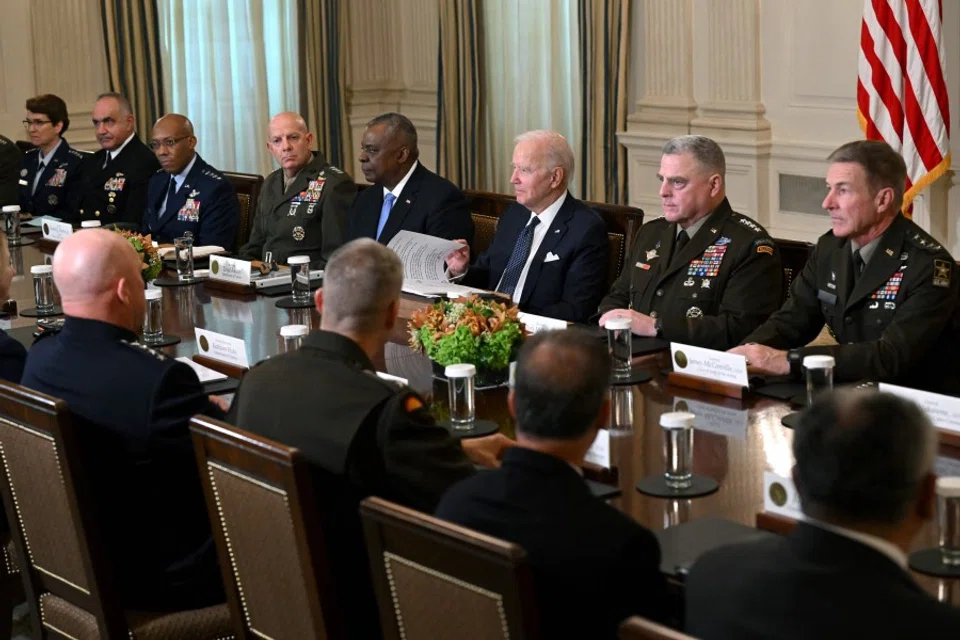
In other words, an alternative nuclear arms race between the US and Russia has taken place unabated behind the scenes in the last few decades. Nuclear blackmail and even the willingness to use nuclear weapons are no longer taboo, but people around the world go about their lives without being aware of this nuclear threat.
A nuclear explosion is devastating and the killing is indiscriminate. So, no matter the reason, setting off a nuclear weapon is a heinous war crime. The problem is that the decision to not use nuclear weapons is not legally binding, rather it is based on morals, norms or even tacit understanding. Even the ratification of international conventions is in vain unless all parties keep their promises to prevent the occurrence of mishaps.
This confluence of personal will and judgement is a deadly concoction susceptible to a wrong move and chance.
From an institutional point of view, one may be less wary of US presidents, who are elected intellectuals that will be replaced after two terms in office at most. Since they still have the rest of their lives to look forward to after stepping down, surely even defeat by the Viet Cong or the Taliban would not force them into going against public sentiment to commit a great wrong. But the same cannot be said of dictators. When power is for life and one can stay in position till succumbing to death or senility, and when an individual rules over an entire country, there is often much less margin for error.
A number of Western experts have studied Putin's personality and psychology. There is a view that this proud nationalist might choose to risk it all if he is forced into a corner and has to choose between defeat and losing his power, and starting a nuclear war.
The world has lost its bearings and we are no longer safe from a nuclear war.
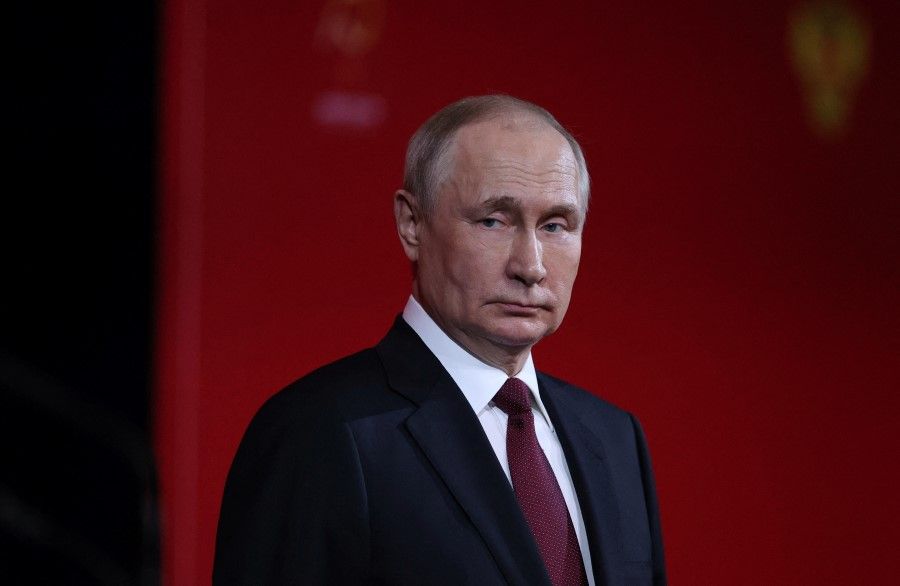
I would rather not be so pessimistic, but the more I think about it the more terrified I become, for we are approaching the most dangerous point of such brinkmanship. If neither side folds first, it would be a point of no return. Simply put, this has become a maniacal game of Russian roulette. This wager among power-hungry politicians could well cost millions of innocent people their lives and properties.
The world has lost its bearings and we are no longer safe from a nuclear war. The Europeans will be the first to face this danger. Let us hope that they are wise enough to avert this disaster, otherwise, they would need good fortune - and plenty of it.
Related: 5 nuclear-weapon states vow no arms race: A more peaceful world? | The world needs to pay attention to renewed Korean peninsula confrontation | Fukushima wastewater: Why China is protesting while the US gives the nod | Russia-Ukraine crisis: Can Russian aggression bring back the former glory of the Soviet Union?
